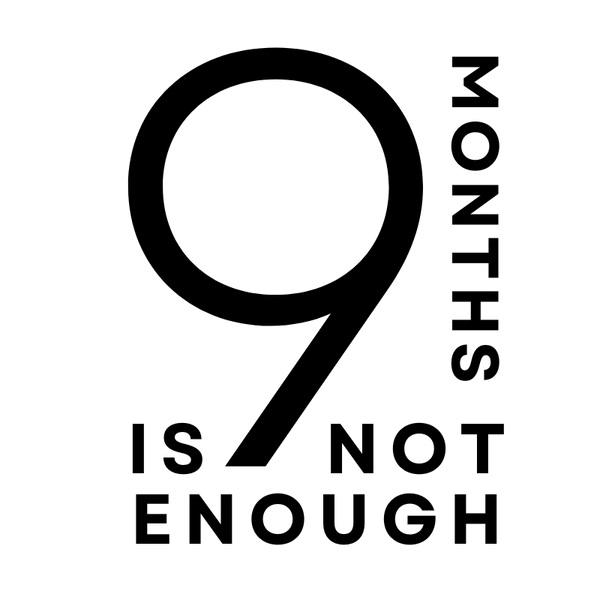Today, I want to talk about who does what in a healthcare setting.
I’ve been thinking recently about what doctors are and are not equipped to address. There is this credibility halo over doctors. "Well, they’re a doctor so they must know the answer." The thing is, this deferential treatment often extends to topics beyond their area of expertise.
I have an immense amount of respect for doctors. I also wouldn't ask a doctor about legal advice - or relationship advice. It’s not their domain of expertise.
Dr. Kelly Brogan talks about trying to “buy eggs from the hardware store”. Essentially, she’s referring to trying to get our needs met from a place that can’t fundamentally meet them. Often, this is in the context of relationships, but I think it applies here as well. No matter how convincing or resourceful you are, a hardware store doesn’t stock eggs; it’s not even on the menu of options available to you.
It behooves us to know what’s on the “menu” so to say when we go to the doctor - and what is not. There are many features of the modern medical system, but I’d like to call out two features for the purposes of this discussion: specialization and interventionism.
Doctors have increasingly become specialized (e.g., cardiologist, endocrinologist). They are narrowly focused on their specific domain. Because of this, they tend to know their area of medicine extremely well. However, a consequence of this approach is that they think about the body in silos, rather than holistically.
Doctors are interventionists. They are expertly trained in two main interventions - medications and procedures. If what you are struggling with can be addressed with one of these two interventions, then a traditionally trained doctor is a great practitioner to meet your needs. If, however, you are struggling with something that doesn't fit neatly into these two buckets, you may need to seek out other providers.
Over the years, I’ve also found 3 other main areas that are usually not in a doctor’s wheelhouse: nutrition, lifestyle changes and menstrual cycle optimization. Because doctors are not well-trained in these 3 areas, alternative health practitioners have sprung up to fill this gap. Let’s talk about them briefly.
1. Nutrition
Doctors only get a few hours of nutrition training in their entire medical education. According to Steven DeVries, a preventive cardiologist, “...nutrition is vastly underutilized in medical practice…I saw the end result of disease that in many cases could have been prevented or the severity lessened, had more attention been paid to nutrition and lifestyle.” DeVries is advocating for more integration of nutrition into clinical medicine.
Until that happens, nutritionists have sprung up to fill this gap. Nutritionists can come from a variety of different backgrounds and trainings - some earn a nutrition certificate, some become registered dieticians (RD), some become certified nutrition specialists (CNS), some earn advanced degrees (MS or PhD in nutrition). Many RD or CNS candidates must complete a minimum number of clinical hours to receive their certification; this is not always the case with shorter nutrition programs. Some programs are more behavior focused, others are more biochemistry focused. Some programs include an ability to understand and work with lab testing; others rely on symptoms alone.
In almost all cases, though, there are hundreds of hours of training involved to get a baseline understanding of nutrition fundamentals. This is significantly more than any medical school.
2. Lifestyle support
A second area of training that is under-represented in medical school is working with modifiable lifestyle factors, such as sleep, movement and relationships to name a few. This training also includes motivational interviewing and behavioral support. What are your goals? Why do you want to pursue these goals? How can we help you achieve these goals?
Doctors aren’t trained in nor do they often have the time it takes to coach people towards healthier lifestyle choices. Because of this gap, health coaching as an industry has blossomed to support people alongside their doctors.
3. Menstrual cycle health
Last, but certainly not least, most doctors (even OB-GYN’s) are not trained in natural tools for menstrual cycle health. The tool most often used to “manage” menstrual cycle irregularities is the birth control pill. In fact, women are most often prescribed either birth control or an antidepressant to address their symptoms. The other intervention available is a hysterectomy. According to Yale Medicine, “Hysterectomy, the surgical removal of the uterus, is the second most common surgery for women in the United States (after cesarean section), with approximately 500,000 hysterectomies performed yearly.” The second most common surgery for women is removing their uterus! Clearly, we need more options on the table.
Since many women have begun seeking alternatives besides birth control and surgical interventions, alternative health practitioners have emerged to help. These include hormonal health coaches, women's health coaches and FAM (fertility awareness method) providers, in addition to many alternative health practitioners that also have wisdom to share in this arena (e.g., TCM / acupuncturists, Arvigo massage practitioners, midwives).
The reason I point all of this out is that we can be let down if we seek help from places that aren’t equipped to provide it in the first place. Doctors are not trained in nutrition, health coaching or menstrual cycle optimization (unless they do additional training on their own time and dime). Because of this, it often takes a team of providers to create optimal health care. And, if you’ve been dismissed by your doctor if you’ve brought any of these types of concerns to them, it’s not your fault - or theirs. It’s just time for you to look elsewhere to get your very valid needs met.

